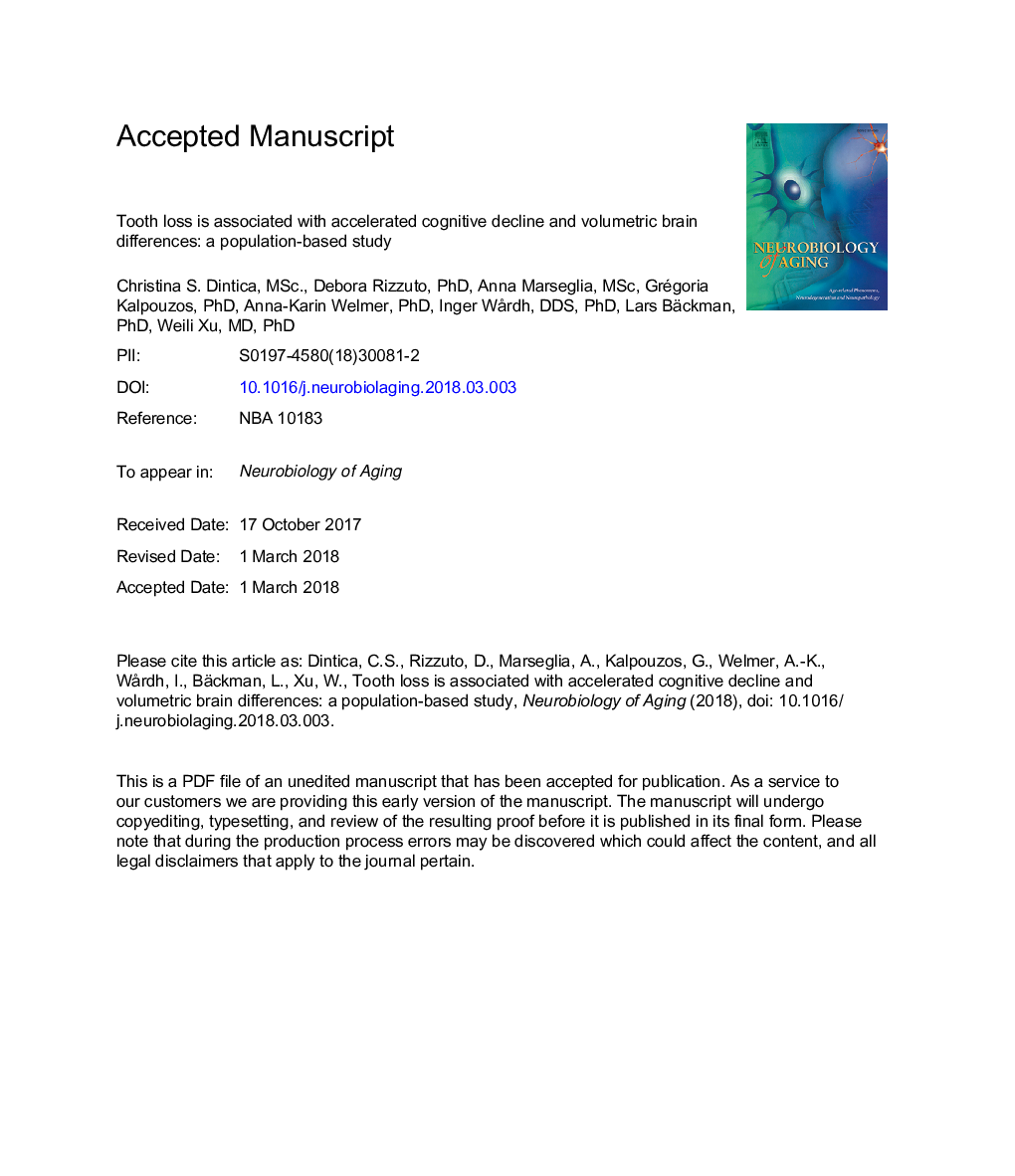| Article ID | Journal | Published Year | Pages | File Type |
|---|---|---|---|---|
| 6802899 | Neurobiology of Aging | 2018 | 34 Pages |
Abstract
Tooth loss has been related to cognitive impairment; however, its relation to structural brain differences in humans is unknown. Dementia-free participants (n = 2715) of age â¥60 years were followed up for up to 9 years. A subsample (n = 394) underwent magnetic resonance imaging at baseline. Information on tooth loss was collected at baseline, and cognitive function was assessed using the Mini-Mental State Examination at baseline and at follow-ups. Data were analyzed using linear mixed effects models and linear regression models. At baseline, 404 (14.9%) participants had partial tooth loss, and 206 (7.6%) had complete tooth loss. Tooth loss was significantly associated with a steeper cognitive decline (β: â0.18, 95% confidence interval [CI]: â0.24 to â0.11) and remained significant after adjusting for or stratifying by potential confounders. In cross-sectional analyses, persons with complete or partial tooth loss had significantly lower total brain volume (β: â28.89, 95% CI: â49.33 to â8.45) and gray matter volume (β: â22.60, 95% CI: â38.26 to â6.94). Thus, tooth loss may be a risk factor for accelerated cognitive aging.
Related Topics
Life Sciences
Biochemistry, Genetics and Molecular Biology
Ageing
Authors
Christina S. Dintica, Debora Rizzuto, Anna Marseglia, Grégoria Kalpouzos, Anna-Karin Welmer, Inger WÃ¥rdh, Lars Bäckman, Weili Xu,
